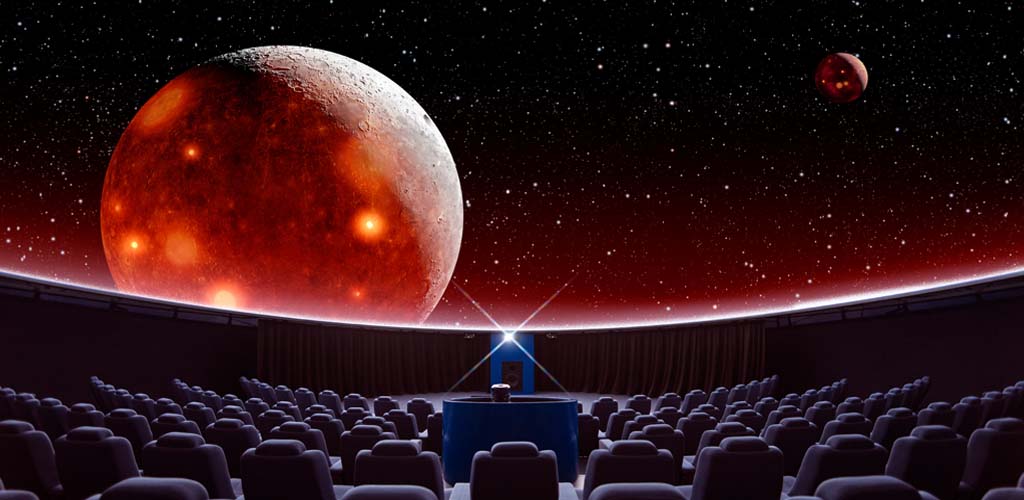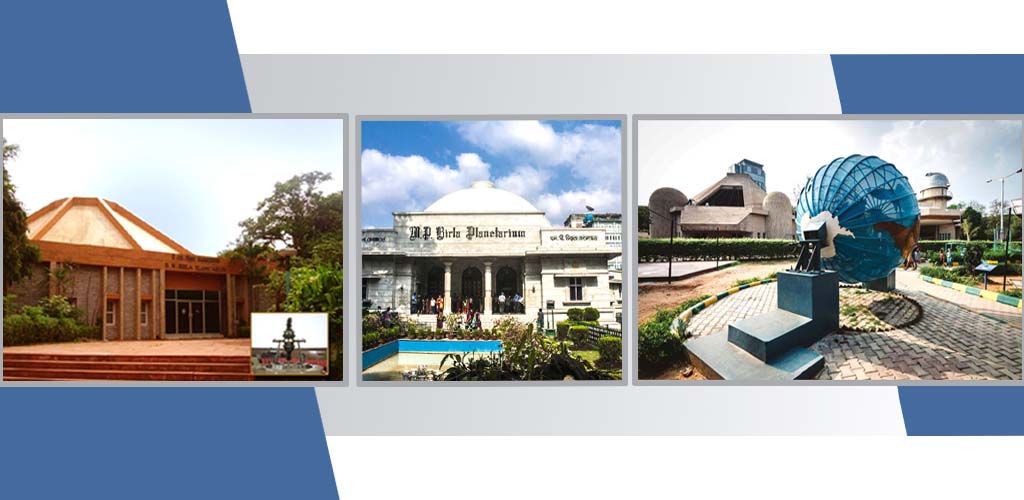Value of a Planetarium in Education
By Samadrita Chakraborty |
Date 08-08-2024

Table of Contents
Admissions Open for
The mystery of the universe is enticing and unperceivable at the same time. For millions of years, people thought all cosmic events to be some grace of gods or the wrath of demons. But, a hunger for knowledge has never let humans be at rest. This constant push helped this civilisation discover the reason behind numerous mysteries, although many remain undiscovered. The planetarium is the outcome of those discoveries. The way you visit zoos is to have a feel of the wildlife. Planetarium introduces you to the star families. No, not the film or sports stars. The real stars in the cosmos. In a nutshell, a planetarium is a miniature construction of the universe.
What is a Planetarium?

A night under the stars strikes us when we think of a planetarium. A planetarium surrounds viewers with a glimpse into the night sky. This specialised facility projects the solar system in a mini version. An exclusive projector with special facilities joins hands with a hemispheric screen. There are planetariums of different sizes across the world. Each of the planetariums features various planetarium shows. As the variety in the events of the planetary bodies is numerous, one show cannot cover all the details. Planetarium gives a glimpse of the space-related discoveries that humankind has made till now.
Why Planetariums Are Important in Educational Institutions?
The lesson on natural geography starts in class 3. This is the time students begin exploring the facts about this universe. Natural geography is only perceivable once children witness the movement of the planets. Like science lessons are incomplete without vast exposure to experiments. Once they notice how the magnetic field of the Sun attracts other planets and make them revolve around the Sun, a clear concept about the cosmos builds. Most of the time, the price of the planetarium tickets differs from show to show.
Nowadays, some educational institutions are arranging for portable planetariums. Here, children get special comfort from their familiar audience and thorough teacher guidance. The shows are also specially designed considering their lesson plans.
What Are Sky Shows?

Sky shows are planetarium theatre programs the authority offers to the general public. Therefore, people often call the place a planetarium museum. The themes of the shows are based on the future of life on Earth, cosmologies of ancient cultures, dinosaurs’ extinction, etc. Different themes are covered every alternate day.
These shows become compact with visual displays, cued music, pre-recorded narration, and other sound effects. Some large planetariums use technologically advanced multimedia installations.
History of Planetarium
The planetarium has a graver meaning that explains a kind of mechanical model. The model portrayed the motions of the orbits of the planets and their moons. These models were made for exhibition and teaching.
The models were set up on wire rods at a central pedestal. Different models of the Moon are known as orreries. The first mini planetarium was built in 1712. Then in 1923, the Deutsches Museum was unveiled to the public. Zeiss projector was first opened here after two years of its establishment. As the planetarium was located under the domain of heaven, people described it as a schoolroom.
The sky shows are essential educational shows specially designed for school children. This is a vital part of the program in most installations.
List of planetariums in India

When you search for “planetarium in India”, you will find a long list. The list includes:
- Jawaharlal Nehru Planetarium in Karnataka
- B.M. Birla Planetarium in Tamilnadu
- M.P. Birla Planetarium in West Bengal, the largest planetarium in India
- Pathani Samanta Planetarium, Odisha
Planetariums are an integral part of natural geography. If you want to educate your child with the practical knowledge of astronomy, taking them to the planetarium is your responsibility as a parent.
Also Read…
Tips For Getting Kids Interested In Space Science!
7 Astounding Facts About Galaxy!
Other Related Sections
NCERT Solutions | Sample Papers | CBSE SYLLABUS| Calculators | Converters | Stories For Kids | Poems for Kids| Learning Concepts | Practice Worksheets | Formulas | Blogs | Parent Resource
CBSE Schools In Popular Cities
- CBSE Schools in Bangalore
- CBSE Schools in Mumbai
- CBSE Schools in Pune
- CBSE Schools in Hyderabad
- CBSE Schools in Chennai
- CBSE Schools in Gurgaon
- CBSE Schools in Kolkata
- CBSE Schools in Indore
- CBSE Schools in Sonipat
- CBSE Schools in Delhi
- CBSE Schools in Rohtak
- CBSE Schools in Bhopal
- CBSE Schools in Aurangabad
- CBSE Schools in Jabalpur
- CBSE Schools in Jaipur
- CBSE Schools in Jodhpur
- CBSE Schools in Nagpur
- CBSE Schools in Ahmednagar
- CBSE School In Tumkur

Call Us to know more about Orchids
Swipe Up

















